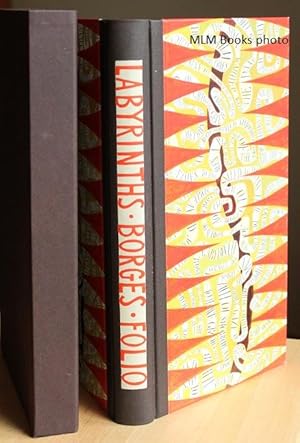
"Now I hold in my hands a vast methodical fragment of an unknown planet's entire history, with its architecture and its playing cards, with the dread of its mythologies and the murmur of its languages. Which is reality? Is it an error of translation? Duodecimal system - # rewritten - 12 is 10, 60 is 10 - one number can be all numbers, one man can be all men - like mirrors - there is reality and then there is reality reflected. "in the illusory depths of the mirrors." Herbert Ashe - suffered from "unreality" -Desire Machines, Carter Mythology of Uqbar is fantasy - like all religion - it's fantasy but the meanings lie in reality. Uqbar ambiguous, vague - like the universe, like nature. Mirrors and fatherhood are abominable because they multiply and disseminate that universe."

For one of those gnostics, the visible universe was an illusion or (more precisely) a sophism. Other encyclopedia: "copulation and mirrors are abominable. "the heresiarches of Uqbar have declared that mirrors and copulation are abominable, because they increase the number of men." First person novel - experiencing banal reality - book is a small world of reality for reader. Discovery due to mirror and encyclopedia - mirrors life on earth, also subject to definitions The problem of illusion and reality - but what can we say is reality? Work within work, contamination of reality, voyage in time, double Paradoxical intellectual possibilities, collective unconscious, stories repeated since beginning of time because they speak to a universal experience. Dunne: past, present, and future exist simultaneously "We can assert with certainty that the universe is all center, or that the center of the universe is everywhere and its circumference nowhere." -Pascal, Giordano Burno, Alain de Lille I'll admit, my notes make me look a little flighty. But perhaps German is in my foreseeable future.

I think for Borges' sake, I would have to learn Spanish, Latin, and German, and then be fluent in them, which I think no one can ever be fluent in another language other than the one they were born into. I was once told that to better understand Borges, I would have to learn Spanish, but I've also heard that even if you understand Spanish, Borges' writing is still difficult.


Indeed I do, and when my birthday rolls around, in a month or so, I will probably ask for it. Labyrinths is an intellectually rewarding book, so if that's your thing, then this book is for you. Instead, here's my notes, all 14 pages of them. If I were to talk about each and every one of Borges' short stories individually, I would be here until the end of time.


 0 kommentar(er)
0 kommentar(er)
